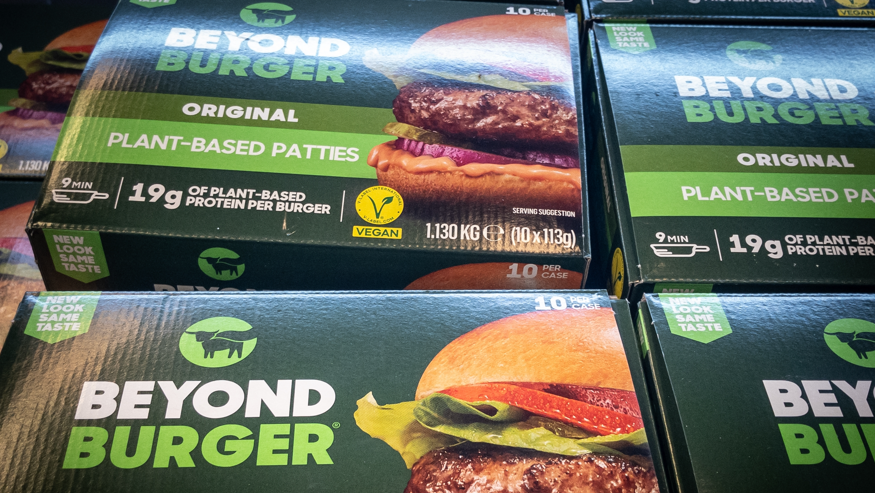Beyond Meat’s IPO success story withers into penny stock territory

All was rosy for Beyond Meat six years ago – alt-protein sales were enjoying a boom and the company’s shares rallied post its IPO to north of $230.
But the tide has turned and Nasdaq-listed Beyond Meat’s shares have been thrown into the dishwasher as a so-called penny stock, churned over by a debt swap and equity dilution.
At the close of play yesterday (13 October), they were trading at $1.04, down 48% on the day.
A calamity might be an understatement but TD Cowen analysts are predicting further declines as the US investment bank lowered its price target to 80 cents from $2.00. And one has to suspect that might be an underestimate unless Beyond Meat can wring out some mammoth undertaking.
The trouble is, efforts to do just that have so far failed to deliver any optimism, at best. After all, the business has been loss-making ever since its market debut in May 2019. The following year, Beyond Meat notched up a loss of $53m, which blew out to $175m in the next 12 months and $343m in 2022.
Those were the blossoming years for plant-based proteins, enabling Beyond Meat to record revenues above $400m annually in the three years after the IPO. With that came international expansion – sales in new markets such as Europe and China, and production facilities overseas.
However, the past few years have been a different story. Most notably, alt-meat sales have dwindled, not just in the US but further afield. The much-publicised issues around taste, texture, mouthfeel, and price have been the main culprits, which defeated the lofty aspirations of industry players and avid investors.
Back down to earth, Beyond Meat has suffered but is still just surviving, while a host of other manufacturers have fallen by the wayside. And the flip to health in the wake of the Covid pandemic hasn’t helped either, as consumers scrutinise ingredients lists – another weight on the plant-based meat category.
All of these factors are now fusing together and Beyond Meat has dug deep into its toolbox this year to try and find some stability but the measures undertaken so far have only served to exacerbate the share price declines.
The latest, a debt swap, replete with an option to swap debt for equity. The completion of that programme was announced yesterday ahead of schedule. And the shares tanked, taking losses this year to 73%.
Key to the shares’ demise was equity dilution. But at the same time, Beyond Meat was swapping zero percent bonds with notes carrying an interest rate of 7% as it sought to cut debt by around $800m.
For a business that had $1.2bn of debt in June, as per the second-quarter results announcement in August, one wonders if ramping up debt-servicing costs was a sensible course to take.
Do you want to build your own blog website similar to this one? Contact us








